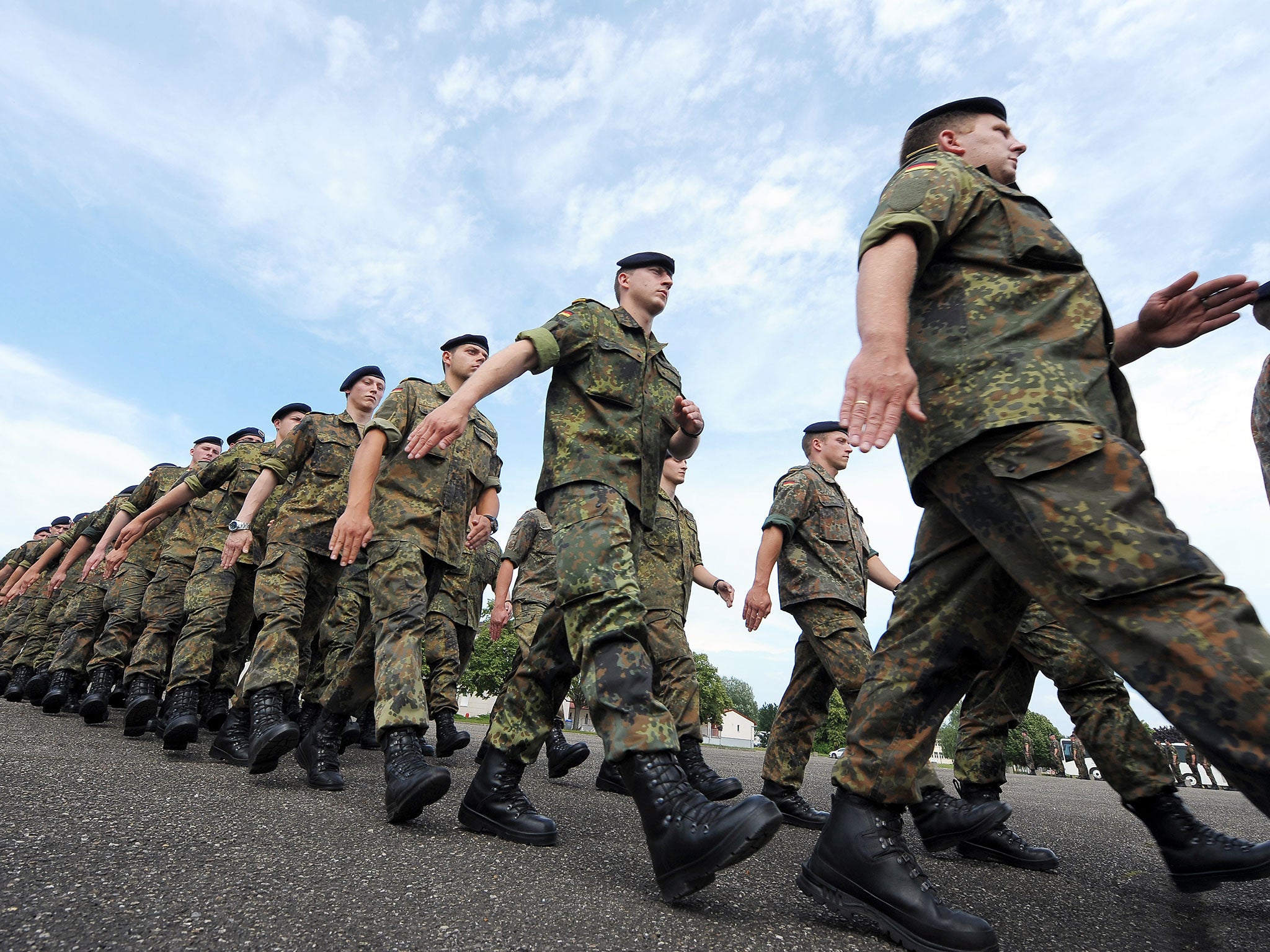Pesco: Remaining EU countries agree to plan to integrate their military forces after Brexit
Non-EU states, like Britain in the future, will be able to join the programme, but only after negotiations and with agreement on providing funds

Your support helps us to tell the story
From reproductive rights to climate change to Big Tech, The Independent is on the ground when the story is developing. Whether it's investigating the financials of Elon Musk's pro-Trump PAC or producing our latest documentary, 'The A Word', which shines a light on the American women fighting for reproductive rights, we know how important it is to parse out the facts from the messaging.
At such a critical moment in US history, we need reporters on the ground. Your donation allows us to keep sending journalists to speak to both sides of the story.
The Independent is trusted by Americans across the entire political spectrum. And unlike many other quality news outlets, we choose not to lock Americans out of our reporting and analysis with paywalls. We believe quality journalism should be available to everyone, paid for by those who can afford it.
Your support makes all the difference.Theresa May arrived in Brussels on Thursday in time to see the official launch of the programme under which European states will integrate their defences, something Britain had avidly pressed for during the 1990s, but will not be a part of as it searches for its post-Brexit future.
The road to today’s Permanent Structured Cooperation (Pesco) began with the Anglo-French European Union defence accord 19 years ago. But the UK subsequently turned against extending this across the EU, holding that it may speed up the creation of an EU force, to the detriment of Nato.
The European states have repeatedly found themselves having to depend on the US to be bailed out militarily in recent times. They were unable to act in the Balkan conflict in the 1990s with any effect until the US stepped in. They were also forced to ask Washington for help after running out of bombs and missiles during the bombing of Muammar Gaddafi’s regime in Libya, a campaign which had been primarily instigated by David Cameron and Nicolas Sarkozy.
But reliance on America has become increasingly uncertain with the coming of Donald Trump, who had repeatedly threatened to curtail support in retaliation against European states not spending enough on defence.
He failed to affirm America’s commitment to Article 5, under which Nato states must come to the aid of an ally under attack, at his first Nato summit as President even when he was unveiling a memorial to the 9/11 attacks, the only time the Article has ever been invoked in the Alliance’s history.
The allegations of clandestine Russian backing for Mr Trump during the US election campaign, the questions about the links between his camp and the Kremlin, and subsequent claims of Moscow’s interference in the French and German elections, have also reinforced the feeling that Europe must do more to protect itself over security and intelligence.
Speaking about European defence cooperation, former German foreign minister Jocshka Fischer said: “It’s sad that we needed Donald Trump to give us a boost, but whatever, it is the right outcome.”
The EU’s foreign policy chief, Federica Mogherini, wanted to stress broad support for the programme to which 25 countries have signed up. “No one EU country can provide security to its citizens on its own. That’s why three-quarters of EU citizens support this,” she said.
The argument that the European initiative would be divisive and would undermine Nato is, it appears, being resolved. Jens Stoltenberg, the Nato secretary-general, will attend some of the EU summit and plans are being drawn up for regular liaison.
Non-EU states, like Britain in the future, will be able to join the integration programme, but only after negotiations, as an exception, with agreement on providing funds.
The UK has indicated that it would like to cooperate with the EU on the issue. Boris Johnson said last month: “We’ll be looking at the new European plans for defence and security cooperation. We’re like a flying buttress to support the cathedral and we think there is a lot op promise in the ideas and we will be backing them up.”
However, there is a feeling among Europeans in the project that the continuing political turmoil in the UK makes any prospective plan by London uncertain.
There is also a degree of scepticism about the British Foreign Secretary’s pronouncements. The ambassador of one West European state said: “Just one example: this is a man who led a Brexit campaign which claimed, falsely, that 100 million Turks can come to Britain if Britain stays in the EU. Then after Brexit he went to Turkey and said that Britain will do its best to ensure that Turkey joins the EU.
“We also don’t know what the composition of a British government will be even in the near future. The feeling is that Pesco will go ahead without the UK being factored into the equation for the time being.”
Join our commenting forum
Join thought-provoking conversations, follow other Independent readers and see their replies
Comments